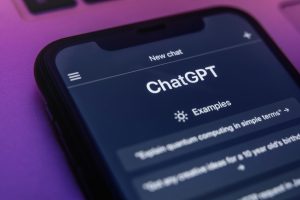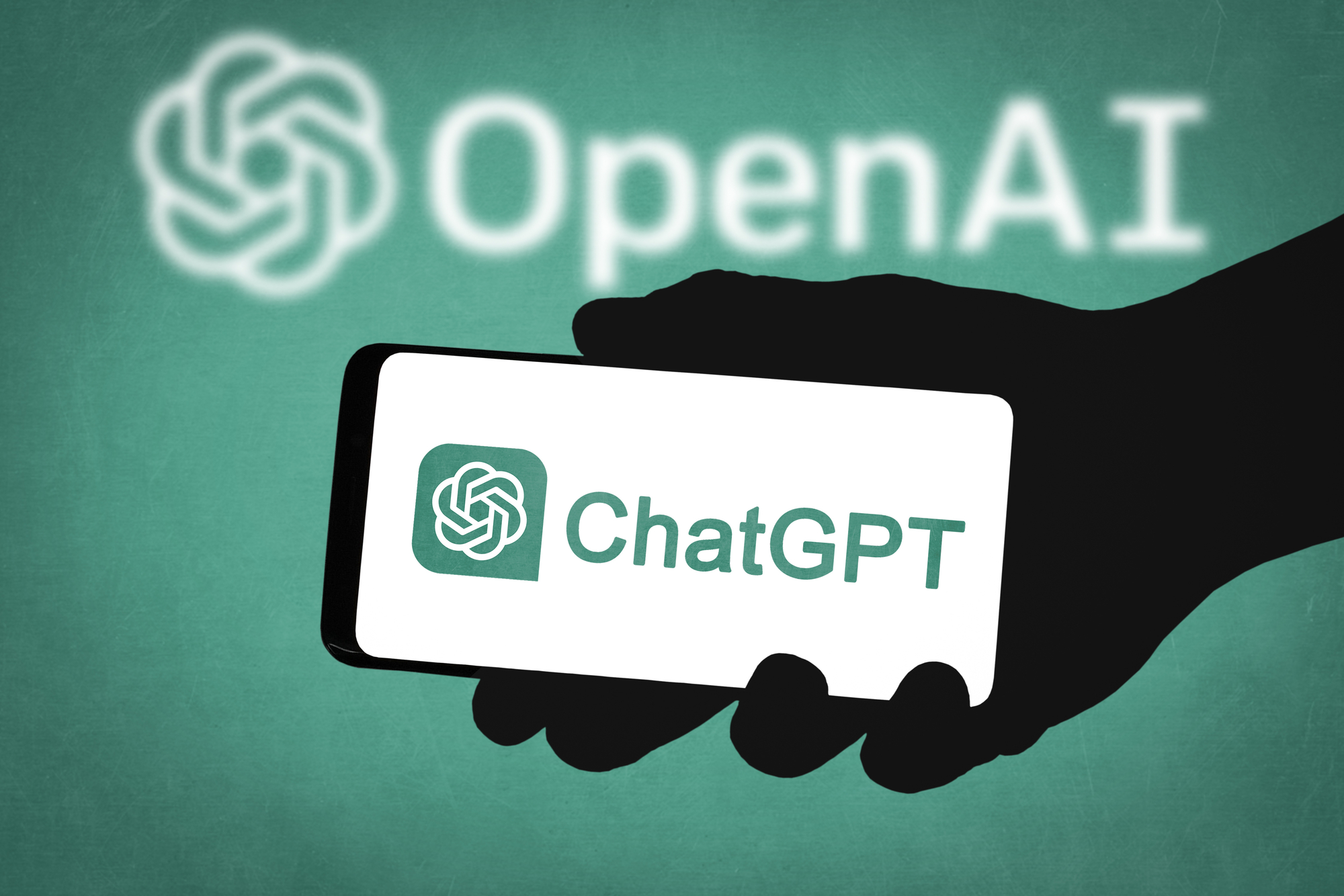The healthcare industry is at a critical crossroads where innovation is desirable and essential for survival. With the digital health market projected to reach $660 billion by 2025, tools like ChatGPT are transforming how healthcare organizations connect, operate, and thrive. As patient expectations for streamlined services continue to rise, technologies like ChatGPT are stepping up to meet these demands.
This advanced AI language model enhances healthcare by improving patient engagement, streamlining administrative workflows, and providing personalized digital experiences. In this post, healthcare professionals, brand managers, marketing teams, digital advertisers, and digital marketers will find actionable strategies for leveraging ChatGPT, enabling smarter operations and elevating patient care in a rapidly evolving healthcare landscape.
Understanding ChatGPT
ChatGPT is a groundbreaking AI model designed to understand and generate human-like text responses. Developed by OpenAI, it uses machine learning to process and respond to user inputs, making it particularly adept at handling repetitive and time-consuming tasks. In healthcare, this means automating routine inquiries, generating informative content, and even assisting with patient interactions. Its relevance in the industry is underscored by its ability to process vast amounts of data quickly, providing insights that can enhance decision-making and operational efficiency.
The potential applications of ChatGPT in healthcare are vast. From offering support in telemedicine consultations to assisting with research and documentation, this AI tool is transforming how healthcare providers interact with technology. Integrating ChatGPT into their operations enables healthcare brands to boost service delivery, lower costs, and elevate patient satisfaction.
ChatGPT is a state-of-the-art AI model designed to process and generate human-like text. Developed by OpenAI, it leverages machine learning to interpret user inputs and provide intelligent, context-driven responses. In healthcare, its utility spans a wide range of applications, from automating repetitive inquiries to facilitating patient interactions.
Key Features of ChatGPT in Healthcare:
- Efficiency: Automates routine tasks such as appointment scheduling and FAQ handling.
- Personalization: Delivers tailored health advice and reminders.
- Scalability: Assists organizations of all sizes, from small clinics to expansive hospital networks.
Healthcare organizations can integrate ChatGPT to reduce operational costs, improve service delivery, and enhance patient satisfaction—making it a transformative tool for providers and patients alike.
Applications of ChatGPT in the Healthcare Industry
1. Enhancing Patient Engagement
Engaging patients effectively is essential for successful healthcare delivery. ChatGPT can be instrumental in enhancing provider-patient communication. With instant responses to common inquiries, ChatGPT ensures patients receive timely information. This fosters greater satisfaction and trust.
For instance, healthcare brands can deploy ChatGPT as a virtual assistant on their websites or mobile apps. Patients can ask health questions, schedule appointments, or receive medication reminders—without human assistance. Furthermore, ChatGPT can provide personalized health tips and recommendations based on individual patient data, fostering a more tailored healthcare experience.
The benefits of enhanced patient engagement are clear. Not only does it lead to better health outcomes, but it also strengthens the relationship between patients and healthcare providers, ultimately driving brand loyalty and growth.
2. Streamlining Administrative Tasks
Administrative tasks in healthcare can be both time-consuming and prone to errors. ChatGPT offers a solution by automating many of these tasks, freeing up valuable time for healthcare professionals to focus on patient care. From appointment scheduling to handling basic inquiries, ChatGPT can efficiently manage a range of administrative functions.
One of the key advantages of using ChatGPT for administrative tasks is its ability to operate 24/7. This ensures that patients can receive assistance at any time, without the need for additional staffing. Additionally, ChatGPT can integrate with existing systems to streamline workflows and reduce the risk of human error.
By leveraging ChatGPT for administrative support, healthcare brands can improve operational efficiency, reduce costs, and enhance the overall patient experience.
3. Content Marketing Made Simple
One of the most exciting ways healthcare brands can use ChatGPT is through content marketing. By delivering valuable and personalized content, healthcare providers can educate patients while building trust and loyalty. Content crafted using AI-driven tools like ChatGPT offers a unique opportunity to tailor messages to specific audiences, incorporating their language and preferences into brand messaging for maximum impact.
Here are some ways healthcare brands can leverage ChatGPT for efficient content marketing:
- Personalized Patient Outreach: When it comes to communicating with patients, personalization is critical for engagement. Using data from electronic health records (EHRs), ChatGPT enables targeted communication that resonates with patients and provides them with information that is relevant to their specific health needs.
- Social Media Engagement: ChatGPT can be integrated into social media management tools, enabling healthcare brands to create personalized, engaging content for different platforms. Understanding user behavior and preferences allows ChatGPT to create posts that boost engagement and increase brand awareness.
- Email Marketing: With patient data as its foundation, ChatGPT can generate highly targeted emails that are more likely to resonate with recipients. This makes it an invaluable tool for healthcare brands looking to enhance engagement through email marketing campaigns.
Case Studies
Several healthcare brands have already begun to reap the benefits of integrating ChatGPT into their operations. Let’s check out some real-world examples:
Streamlining Patient Support with ChatGPT
A regional hospital network struggled with long wait times and delays in addressing routine patient inquiries. To tackle this, they implemented ChatGPT on their website and app, using it to manage frequently asked questions, appointment scheduling, and general health advice. ChatGPT was also integrated with the hospital’s electronic health records (EHR) system, allowing patients to book or cancel appointments without human assistance. As a result, the chatbot managed over 70% of inquiries autonomously, cutting patient wait times by 40%. This improved patient satisfaction and freed up staff to focus on complex cases, enabling more personalized interactions and greater overall efficiency.
Revolutionizing Medical Record Documentation
Physicians at a private multi-specialty clinic faced a significant administrative burden, spending around two hours daily on documentation. To ease this workload, the clinic introduced ChatGPT to assist with transcribing and structuring medical notes using audio recordings of patient consultations. With the model’s help, physicians reduced documentation time by 60%, gaining over an hour each day for patient care. The clinic also noted that ChatGPT-enabled notes were more organized, which reduced time spent on record-checking. Physicians expressed greater job satisfaction as they could focus more on direct patient interactions.
Enhancing Mental Health Support Through ChatGPT-Powered Conversations
A digital mental health platform aimed to provide accessible, on-demand support for users with mild to moderate anxiety and depression. They deployed ChatGPT to deliver cognitive behavioral therapy (CBT) techniques and self-help resources, with the model programmed to recognize crisis language and direct users to emergency resources when needed. This integration increased user engagement by 50%, with users appreciating the instant support available for managing daily mental health challenges. ChatGPT became an invaluable supplement to the platform’s licensed therapists, allowing them to focus on cases requiring human intervention while providing support to a broader base.
Empowering Healthcare Marketing with Personalized Patient Engagement
A leading health insurance provider aimed to elevate its marketing through personalized content tailored for prospects and existing customers. ChatGPT was integrated into the company’s CRM system, allowing it to analyze patient data. This enabled the creation of targeted email campaigns, social media content, and website interactions tailored to individual health needs. After ChatGPT’s implementation, enrollment increased by 25% during the next open enrollment period. Customer engagement metrics also improved across digital platforms. The provider successfully scaled its marketing reach, using tailored content to elevate the patient experience and drive growth.
Best Practices and Tips
Integrating ChatGPT into healthcare operations requires careful planning and execution. Here are some best practices to consider:
- Define Clear Objectives: Before implementing ChatGPT, identify specific goals and objectives. Whether it’s improving patient engagement or streamlining administrative tasks, having a clear vision will guide your strategy and ensure successful integration.
- Ensure Data Privacy and Security: Healthcare data is highly sensitive, and protecting patient information is paramount. Ensure that your ChatGPT implementation complies with all relevant regulations and that robust security measures are in place to safeguard data.
- Train Staff and Monitor Performance: Provide training to staff on how to effectively use ChatGPT in their roles. Regularly monitor the performance of the AI tool and make adjustments as needed to optimize its functionality.
- Continuously Improve and Update: Technology is constantly evolving, and it’s important to keep your ChatGPT implementation up to date. Regularly review and update the AI tool to ensure it continues to meet the needs of your organization and patients.
Following these best practices, healthcare brands can successfully integrate ChatGPT into their operations and realize its full potential.
Conclusion

ChatGPT is transforming the healthcare industry, enhancing efficiency, patient engagement, and brand growth. Its applications are diverse, spanning administrative support to personalized marketing campaigns. ChatGPT empowers healthcare brands to streamline operations, reduce costs, and deliver superior patient services. Embracing ChatGPT allows healthcare brands to address complex challenges while providing a more seamless healthcare experience.
Looking ahead, the future of healthcare branding lies in integrating innovative technologies like ChatGPT. Leveraging this powerful AI tool positions healthcare brands as leaders in the field. The platform enables sustainable growth and helps them stay ahead in a rapidly evolving landscape.
Ready to explore the benefits of ChatGPT for your healthcare brand? Propellant Media offers a range of digital advertising services to help you harness the power of AI. Contact us today to schedule a 30-minute demo with our experts and discover how we can support your brand’s growth and success. For more information, visit our ChatGPT prompts for business owners and medical healthcare marketing pages.

